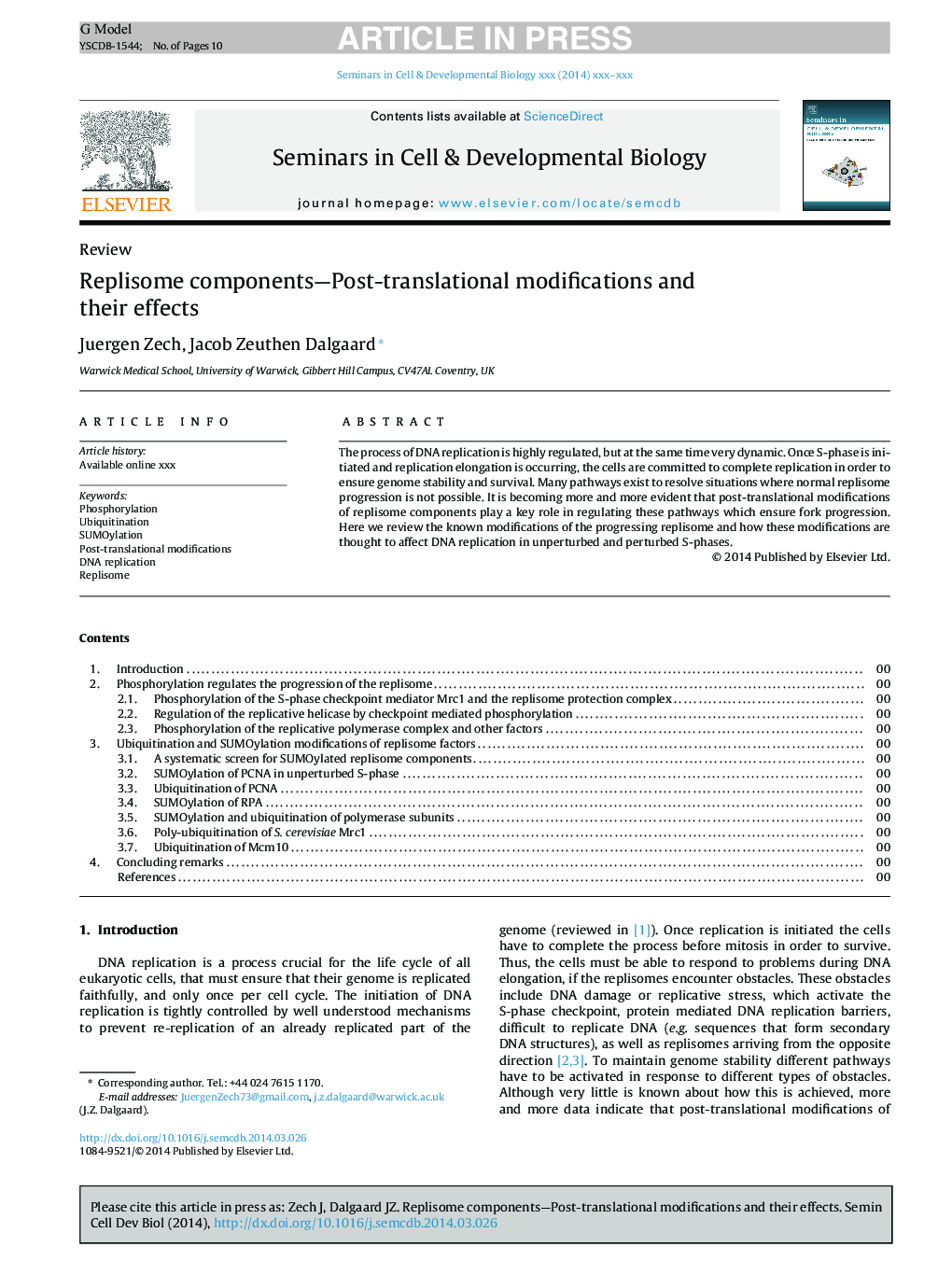| Article ID | Journal | Published Year | Pages | File Type |
|---|---|---|---|---|
| 8480744 | Seminars in Cell & Developmental Biology | 2014 | 10 Pages |
Abstract
The process of DNA replication is highly regulated, but at the same time very dynamic. Once S-phase is initiated and replication elongation is occurring, the cells are committed to complete replication in order to ensure genome stability and survival. Many pathways exist to resolve situations where normal replisome progression is not possible. It is becoming more and more evident that post-translational modifications of replisome components play a key role in regulating these pathways which ensure fork progression. Here we review the known modifications of the progressing replisome and how these modifications are thought to affect DNA replication in unperturbed and perturbed S-phases.
Keywords
Related Topics
Life Sciences
Biochemistry, Genetics and Molecular Biology
Cell Biology
Authors
Juergen Zech, Jacob Zeuthen Dalgaard,
